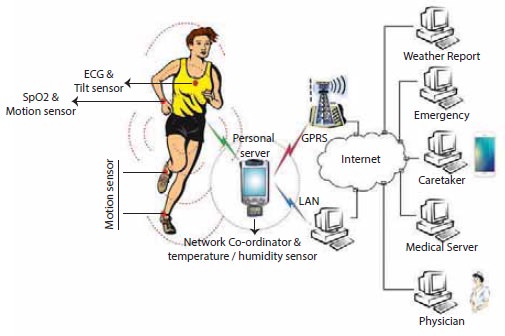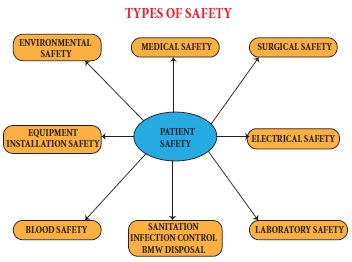Nursing - Safety and Comfortable Environment | 11th Nursing : Chapter 3 : Nursing - Hospital and its Environment
Chapter: 11th Nursing : Chapter 3 : Nursing - Hospital and its Environment
Safety and Comfortable Environment
Safety and Comfortable Environment
The environment in which the
patient is placed should be comfortable and safe and it should contribute to
his well being and should not retard his recovery.

a. Patient Safety and Comfort Measures:
Safety means protection from
possible injury during the process of health care
Types of safety

Medical Safety
·
Clear
doctors order
·
identification
of patient with similar names
·
proper
handling and taking over during change of shift
·
check
oxygen flow and empty cylinder
·
check
drip flow speed, drip sets, air bubbles etc
·
avoid
wrong medication
·
discourage
telephonic order
Surgical Safety
·
Proper
patient identification
·
performance
of correct procedure at correct body site
·
improved
hand hygiene
·
avoid
wrong connections of tubings. eg. catheters
·
check
safety code
·
red
– allergy
·
yellow
– fall risk
·
purple
– do not resuscitate
Laboratory Safety
·
Single
use of syringe
·
avoid
needle prick
·
avoid
spilling of blood
·
care
in handling acids and inflammable substances
Electrical Safety
·
Safety
fuses with each equipment
·
No
loose wires or connection.
·
connection
Properly plugged and fixed
·
If
short circuit call electrician
Fire Safety
·
Use
fire proof material for construction
·
Have
fire exit in all buildings
·
Smoke
detection and water sprinklers on the root of all floors
·
Fire
extinguisher in all areas
·
Training
in fire management
Equipment and Installation Safety
·
Regular
checking of equipment
·
Proper
earthling to avoid shock
·
Regular
maintenance and repair
·
Training
nurses and mechanicals of possible hazards.
Blood Safety
·
Proper
grouping and cross matching
·
Test
HIV and hepatitis
Environmental Safety
·
Adequate
light and ventilation
·
Stairs
with hand rails
·
Slip
preventing floors
·
Fire
extinguishers and alarms
·
Prevent
noise pollution
·
Safe
wheel chairs and trolleys
·
No
water logging in bathroom
·
Call
bell system
·
Adequate
number of screens
b. Safeguarding Patient’s Personal Belongings
·
When
documenting valuables make sure to use words like white/yellow metal not gold.
Clear stone not diamonds and rubies
·
Have
a witness
·
Have
nurse and patient sign valuable list
·
Inform
the patient that he will get back his valuables on discharge
Sanitation and Infection Control
·
Proper
segregation transport and disposal of biomedical waste
·
Use
of sterile procedure
·
Formation
of hospital infection control committee
·
Use
of proper disinfection in right dose in right time
·
Safely
dispose in needle destroyer
·
Reorientation
of Doctors and nurses of infection control
Patient Comfort During Hospital Stays:
·
Provide
Privacy (Shut Door, Pull curtain)
·
Assist
if needed to remove clothing & put hospital gown
·
Provide
Extra blankets if requested
·
Hospitals
provide the patient with the right to not only accept their visitors, but also
to deny them. It doesn’t help a patient’s recovery if the visitor is someone
who will only bring them added stress.
·
Visitors
are allowed to stay as long as they want, even overnight.
·
Provide
wireless access along with the usual TV’s and comfortable chairs.
·
Counselling
services and places to pray and meditate.
·
Make
waiting time more productive— or at least less boring.
·
Help
people connect more easily with hospital billing, physicians, scheduling, etc.
·
Learn
more about your patients and visitors—and about their hospital experiences
Related Topics